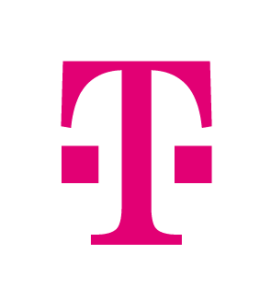At the beginning of the COVID-19 pandemic, governments in Europe had to rely on traditional contact tracing, mainly carried out via phone interviews. With the pandemic spreading more rapidly every day, this was no longer a sustainable solution and the need to develop digital contact tracing became increasingly clear. Building an enabling infrastructure would soon become an urgent priority across Europe.
In early May 2020, the German government reached out to Deutsche Telekom and SAP with a request to develop an official COVID tracing app. After only six weeks, the Corona Warn App was released, the largest open-source project ever implemented in Germany on behalf of the government. And it had a real impact: it was downloaded more than 48 million times and roughly 57 million warnings were issued, due to a close contact to an infected person.
It’s all about trust
From the start of the development of a tracing app, we faced the challenge that many people were concerned about the processing of personal data and potential risks related to privacy. A loss of confidence among the public would have endangered all success in identifying and breaking infection chains early on. Building trust in a secure and privacy-compliant solution was therefore key.
In addition, we were working against the clock. The development process naturally attracted public scrutiny, whilst the pandemic and its impact meant that time was of the essence. Yet, the project required intensive coordination between several players, amongst them the government, national health authorities and third parties including the providers of the major smartphone operating systems.
To address these challenges, the project was set up by Deutsche Telekom and SAP in a fully transparent and integrated manner. Work took place virtually, based on agile working methods that allowed for rapid iterations and product delivery. To involve the public and proactively address existing concerns on data privacy, essential information was shared from the start.
The entire software code and work process was published on an open-source platform (Github.com). This empowered experts as well as the broader public to review the functionality of the application and to submit comments. Over the development process, more than 100,000 people viewed the software code and 7,250 people actively participated.
Moreover, the Corona Warn App was the first European app based on a decentralised approach. Random identification numbers are exchanged between devices via Bluetooth, which makes it impossible to identify the individual behind the code. Decentralised data storage on user devices guarantees data privacy. No personal, geo-location, or other location data are sent or stored.
Tracing the virus – across the EU and globally
While many countries developed their own national tracing apps, there was a strong demand for cross-border tracing within the EU. Building on the successful cooperation in Germany, the European Commission requested SAP and Deutsche Telekom’s subsidiary T-Systems to support the development of a solution for cross-border COVID tracing. Considering the very high European standards on data privacy and security, the team of T-Systems developed a technical concept for a European Federated Gateway Service (EFGS), which acts as a European trust anchor and distributes the required health data across the EU. This concept prevailed against alternative concepts from Google, Apple, Spain and Italy and was implemented by T-Systems and SAP. Hereafter, T-Systems and SAP also developed the EU Digital COVID Certificate (EU-DCC) based on radical new European technologies like an efficient high-security digital envelope with innovative compression methods, as well as very high storage and access efficiency, featuring offline verification and extreme reliability. The success of this project was praised by the European Commission, citing it as an example of Europe becoming a global standard setter in digital health.
Indeed, in February 2022, the World Health Organization (WHO) commissioned T-Systems to bring a similar solution to the global level making it easier for WHO members to introduce digital vaccination certificates in the future. T-Systems’ gateway will enable the exchange of digital documentation of COVID-19 Certificates globally – and become a standard procedure for vaccinations against other diseases such as polio or yellow fever.
Lessons learned: How to drive innovation and successful digitalisation in the health sector
The development of COVID-19 tracing apps and related gateway solutions shows that in Europe it is possible to spur innovation, preserve fundamental values and set a global standard – all of this on an ambitious timeline.
What did we learn? First, trust in data protection and security is key to protecting the app’s end-users and to encourage wide-spread adoption. Second, transparency and the use of Open-Source solutions enable buy-in from experts and the wider public, allowing for a participatory development process. Third, Europe can set a global standard in record time – provided all relevant actors join forces behind a shared mission – in our case governments, national health authorities, industry, and civil society.
However, innovation should not stop here. We should build on the lesson’s learned and use this experience to further drive digitization of the health sector and beyond. The Corona Warn App has been designed with citizens in mind. It is easy to access and understand, technically stable, performant, and meets the highest standards of security and data protection. As a result, it has gained widespread acceptance.
In a first step, we could build on this to develop similar health application platforms for digital vaccination passports. Vaccination certificates and prescriptions could be stored on such an app while ensuring privacy and user control over personal health data. In a second step, these solutions could be extended into a comprehensive European health app: Europeans could centrally access their proof of insurance, existing prescriptions and medical records at the touch of a button.
Moreover, by making such an application interoperable and linking it with other services such as digital citizen identities (e-ID), a personal wallet (e-wallet), or a digital citizen account, its use can be extended towards a variety of public services, accelerating the digital transformation of the public sector at large. Old-fashioned, laborious, and analog processes would finally be transformed into cost-effective and easy-to-use digital processes.
Covid-19 has shown what is possible with an ambitious mindset, transparency and public-private sector cooperation. We now have an opportunity to ensure that this does not remain a one-off activity in response to a crisis but can be an example for projects to come. By building on the solutions and lessons learned during the pandemic, we can use this experience and turn it into a driver for the digital transformation in Europe.

